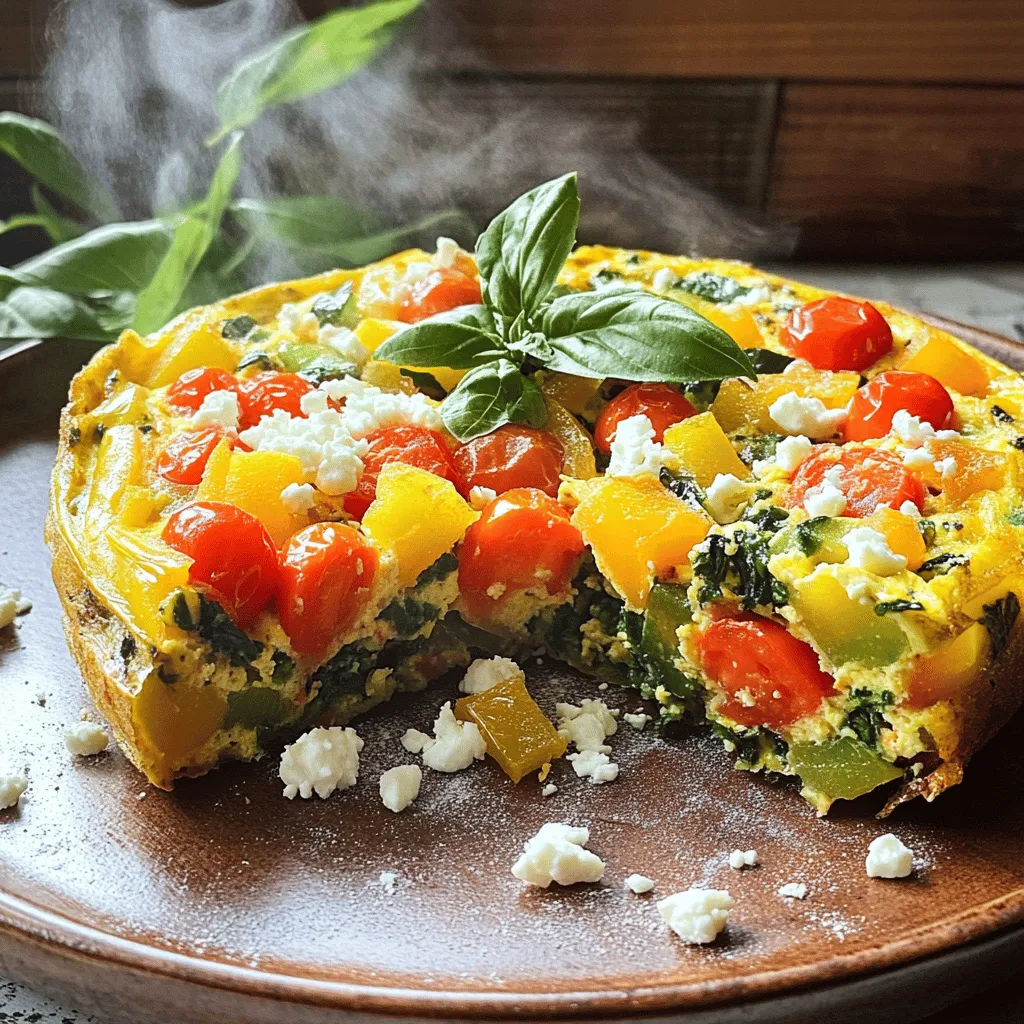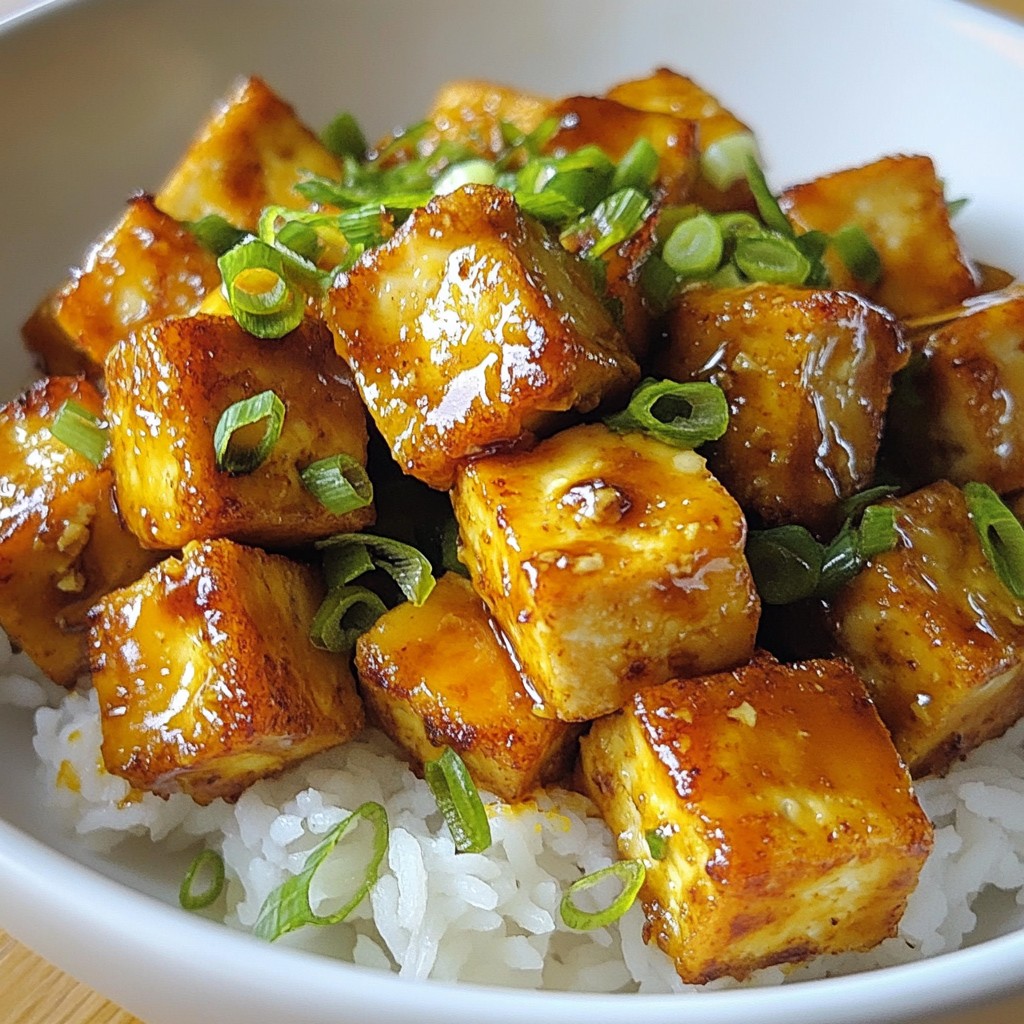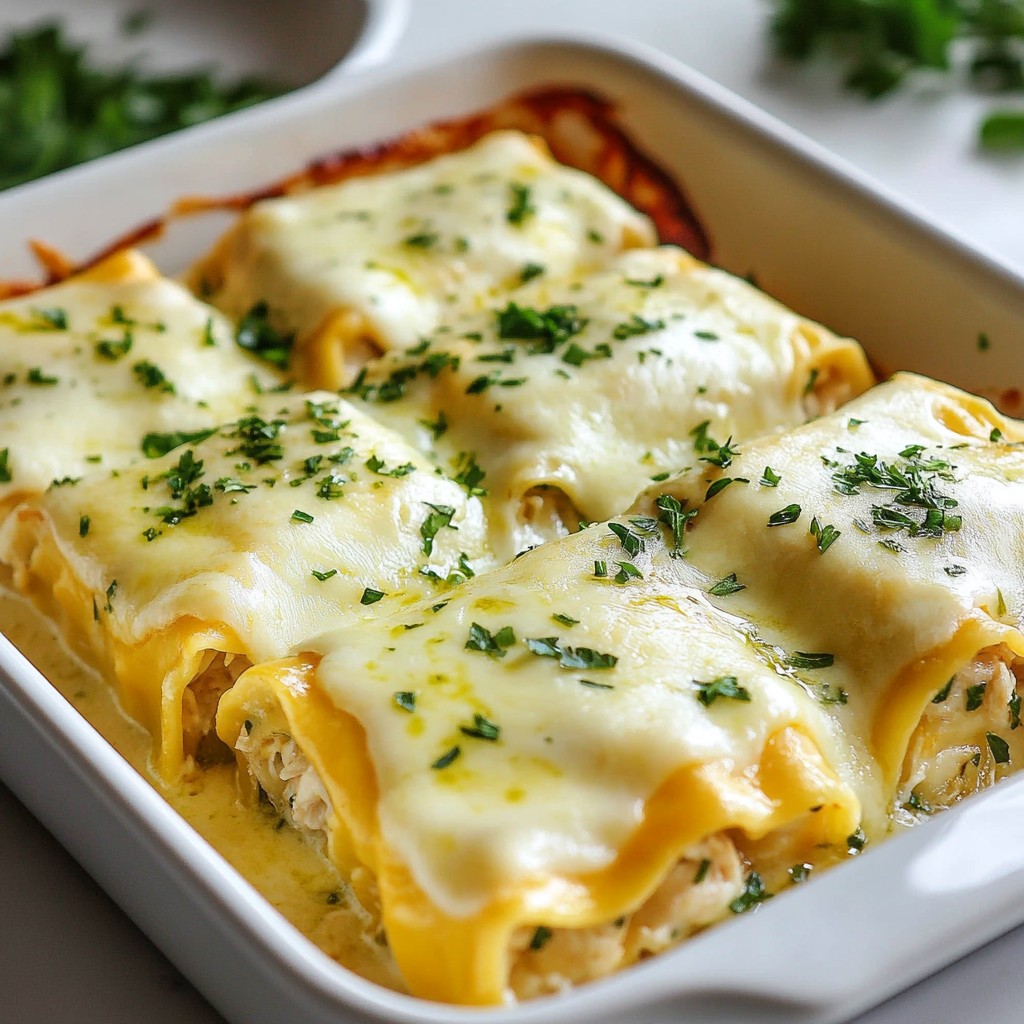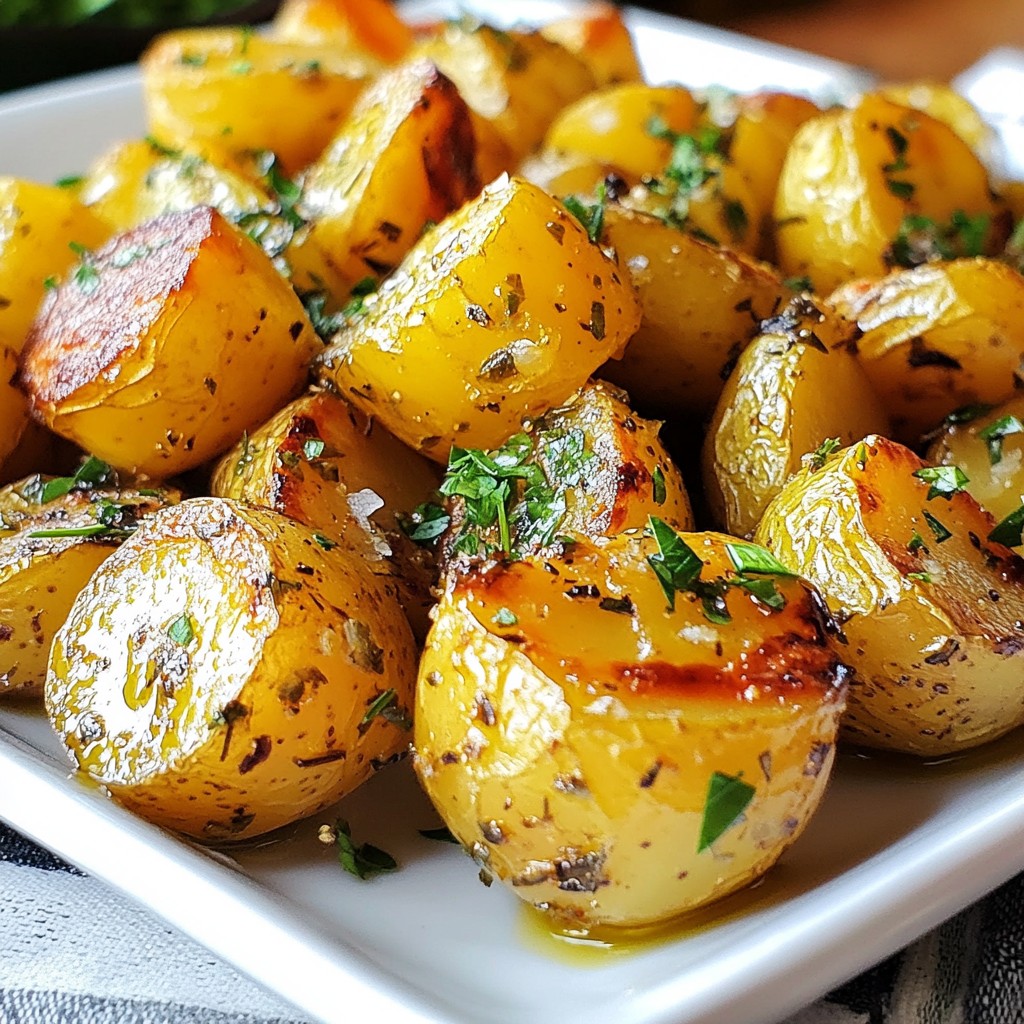Are you ready to whip up a delicious and healthy meal? This Vegetable Frittata is not just tasty; it’s simple to make and packed with nutrients! With fresh veggies and eggs at its core, you can customize it to your liking. Whether you’re cooking for breakfast or brunch, this guide will walk you through every step. Let’s dive in and create something wonderful together!
Ingredients
Main Ingredients for Vegetable Frittata
– 6 large eggs
– 1/2 cup milk
– 1 cup fresh spinach, chopped
– 1/2 cup cherry tomatoes, halved
– 1/2 cup bell pepper, diced
– 1/4 cup red onion, finely chopped
– 1/2 cup feta cheese, crumbled
– 2 tablespoons olive oil
The main ingredients form the base of your frittata. Eggs and milk create a fluffy texture. Fresh spinach adds color and nutrients. Cherry tomatoes bring sweetness. Bell peppers and onions provide crunch and flavor. Feta cheese adds a salty kick, making each bite special.
Seasonings and Flavors
– 1 teaspoon garlic powder
– 1 teaspoon dried oregano
– Salt and pepper, to taste
Seasonings enhance the taste. Garlic powder adds depth. Dried oregano brings an herbal note. Salt and pepper balance flavors. Adjust these to fit your taste.
Optional Ingredients for Extra Flavor
– Types of cheese (e.g., cheddar, goat cheese)
– Additional vegetables (e.g., zucchini, mushrooms)
– Fresh herbs (e.g., basil, parsley)
Want to change it up? Use different cheeses for a new twist. Add veggies like zucchini or mushrooms for more variety. Fresh herbs, like basil or parsley, make it fresh and vibrant.
Step-by-Step Instructions
Prepping the Ingredients
– Preheat the oven to 375°F (190°C).
– In a large bowl, whisk together 6 eggs and 1/2 cup of milk.
Cooking the Vegetables
– Heat 2 tablespoons of olive oil in an oven-safe skillet.
– Add 1/4 cup of finely chopped red onion and 1/2 cup of diced bell pepper. Sauté for 3-4 minutes until soft.
– Now, add 1 cup of chopped spinach and 1/2 cup of halved cherry tomatoes. Stir for 2 minutes until the spinach wilts.
Baking the Frittata
– Pour the egg and milk mixture over the cooked veggies.
– Sprinkle 1/2 cup of crumbled feta cheese on top.
– Cook the frittata on the stove for 2 minutes until the edges set.
– Move the skillet to the oven and bake for 15-20 minutes. Check for a slight jiggle in the center.
– Let the frittata cool for a few minutes before slicing.
This simple recipe makes a delicious meal that anyone can enjoy.
Tips & Tricks
Ensuring the Best Texture
To make a great frittata, you need to whisk the eggs well. This helps create a light texture. Use a large bowl and a whisk. Mix until the eggs and milk are fully blended. Aim for a smooth and airy mixture.
For a fluffy frittata, cook it gently. Start on the stove, then move it to the oven. This helps the frittata rise nicely. Bake it just until the center is firm but slightly jiggly. Letting it rest before slicing helps keep it fluffy.
Serving Suggestions
When serving, cut the frittata into wedges. Use a bright plate to make it stand out. You can add fresh herbs or extra cheese on top for a nice touch. Pair the frittata with a light salad. This adds color and freshness to your meal.
Cooking Equipment Recommendations
For the best frittata, use an oven-safe skillet. A cast iron skillet works great. It conducts heat evenly and gives a nice crust. You’ll also need a whisk and a spatula. These tools help with mixing and serving. Keep them handy to make cooking easier.Happy cooking!
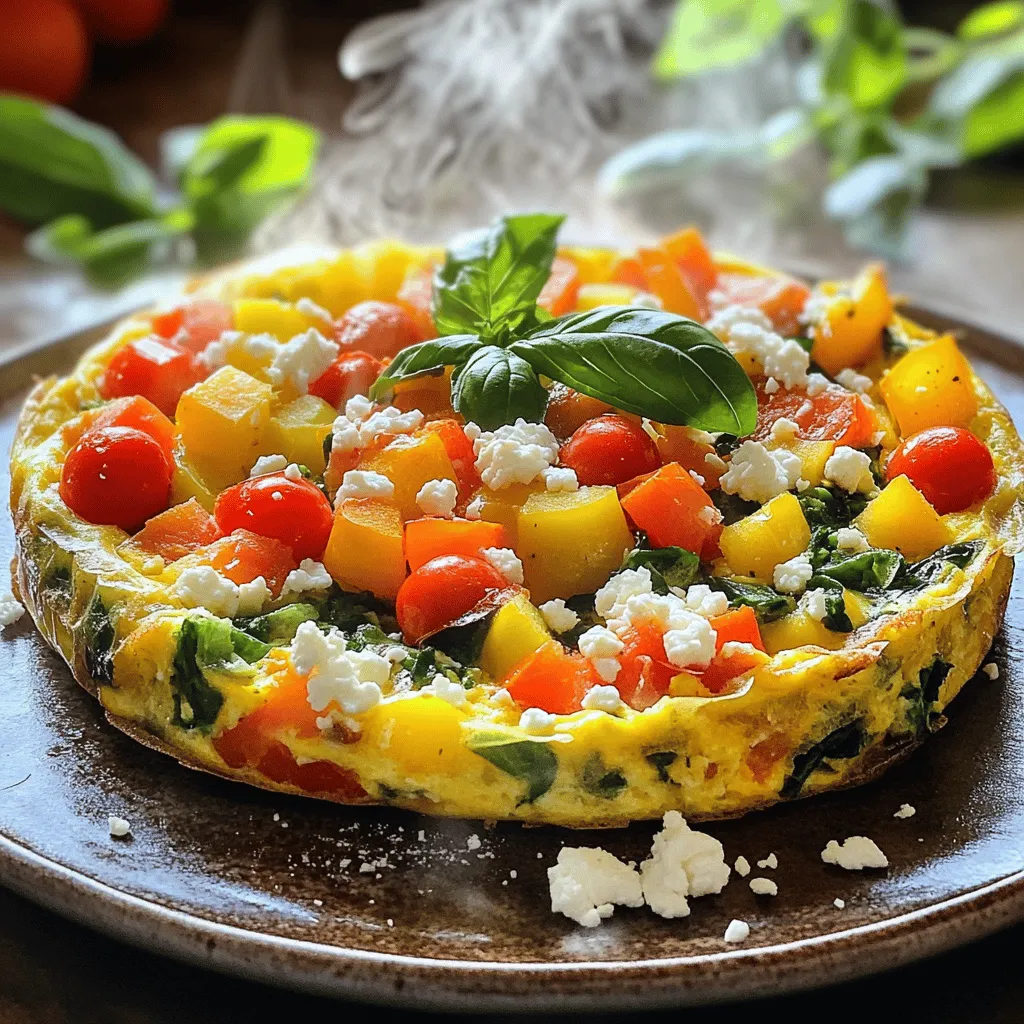
Variations
Different Vegetable Combinations
You can use many vegetables in a frittata. Seasonal veggies are a great choice. In spring, try asparagus and peas. In summer, use zucchini and corn. Fall brings squash and kale. In winter, root veggies like carrots and potatoes work well.
If you have leftover veggies, use them! Mix in cooked broccoli, roasted peppers, or sautéed mushrooms. This saves food and adds flavor. Your frittata will always taste fresh and new.
Cheese Options
Cheese can change the flavor of your frittata. Feta adds a tangy taste, while cheddar gives it a sharp flavor. Goat cheese makes it creamy and rich. Each cheese brings a unique twist.
If you prefer plant-based options, try vegan cheese. Many brands offer good taste and texture. Nutritional yeast is another great choice. It adds a cheesy flavor without dairy.
Global Flavors
Adding spices can give your frittata a global touch. For a Mediterranean flair, use herbs like basil and thyme. A sprinkle of paprika or cumin can give it a Mexican twist.
Consider how the flavors match your ingredients. If you use spinach and feta, Mediterranean spices shine. Pair bell peppers and black beans with Mexican spices. This way, you create a frittata that fits your mood and taste.
Storage Info
How to Store Leftovers
To store leftovers, let the frittata cool to room temperature. Then, wrap it in plastic wrap or place it in an airtight container. This keeps the frittata fresh. Make sure to refrigerate it right away. The frittata stays good for up to four days in the fridge.
For reheating, slice a piece and place it on a microwave-safe plate. Heat it in the microwave for about 30 seconds to 1 minute. Check if it’s warm throughout. You can also reheat it in a skillet over low heat for a few minutes. This gives it a nice texture.
Freezing Frittata
If you want to freeze frittata, wait until it cools completely. Then, slice it into wedges. Wrap each piece in plastic wrap, and then place them in a freezer bag. This helps prevent freezer burn. Frittata can last for about three months in the freezer.
To thaw, take a piece out of the freezer and place it in the fridge overnight. You can also microwave it directly from frozen. Just add a minute or two to the cooking time. This way, you enjoy a quick meal anytime.
Serving Temperature
The best serving temperature for frittata is warm, around 150°F (65°C). This temperature enhances the flavors. You can also enjoy it cold as a snack or in a lunchbox. Cold frittata is tasty and easy to eat on the go.
For a fun twist, try serving it with a side salad or fresh herbs. This adds color and flavor to your meal. If you like, experiment with dipping sauces for added taste.
FAQs
What is the difference between a frittata and an omelette?
A frittata and an omelette have key differences. An omelette cooks quickly and is folded. It has a soft texture and usually fills with ingredients. In contrast, a frittata cooks slowly and is baked. It incorporates more ingredients and has a firm texture. You can also serve a frittata in slices, while an omelette is served whole. This makes the frittata great for sharing, while the omelette is perfect for one.
How do I know when my frittata is done baking?
You can tell a frittata is done by its appearance and feel. Look for a puffed-up, golden top. Gently shake the pan; if the center jiggles slightly, it is fine. The edges should be set, and the center firm. You can also insert a knife into the middle. If it comes out clean, your frittata is ready to enjoy! Allow it to cool slightly before slicing for easy serving.
Can I make a frittata in advance?
Yes, you can make a frittata in advance! This is a great meal prep idea. Cook the frittata and let it cool completely. You can store it in an airtight container in the fridge for up to four days. When ready to eat, reheat slices in the oven or microwave. This saves time and makes for a quick meal. You can enjoy it hot or at room temperature as a tasty snack!
We covered how to make a great vegetable frittata with simple steps. You learned about key ingredients, cooking methods, and tips for perfect texture.
Remember, frittatas are flexible. Use fresh or leftover veggies and adjust cheese to your taste. This dish is great for any meal. Enjoy your tasty creations and share your favorites with friends!
